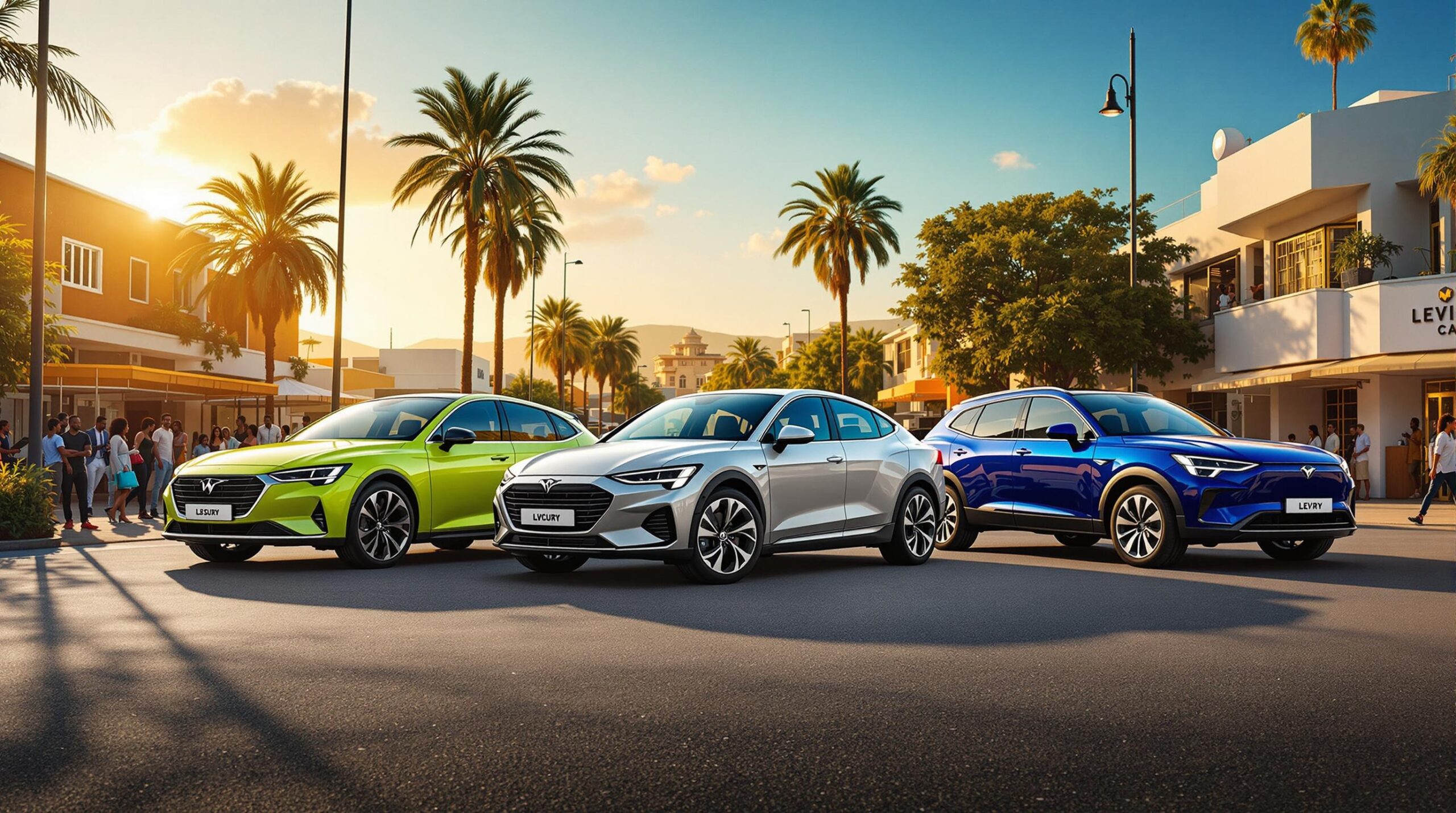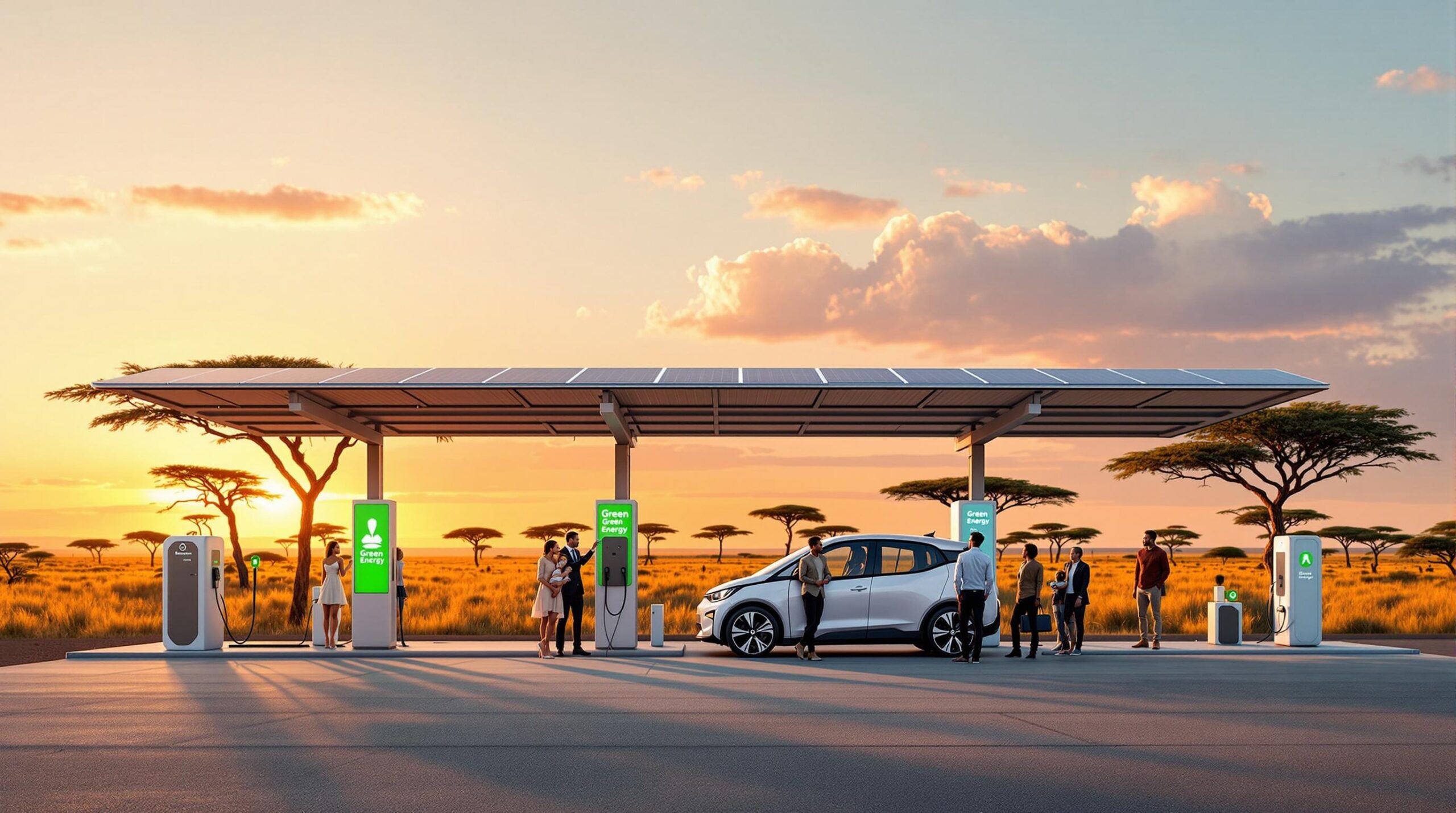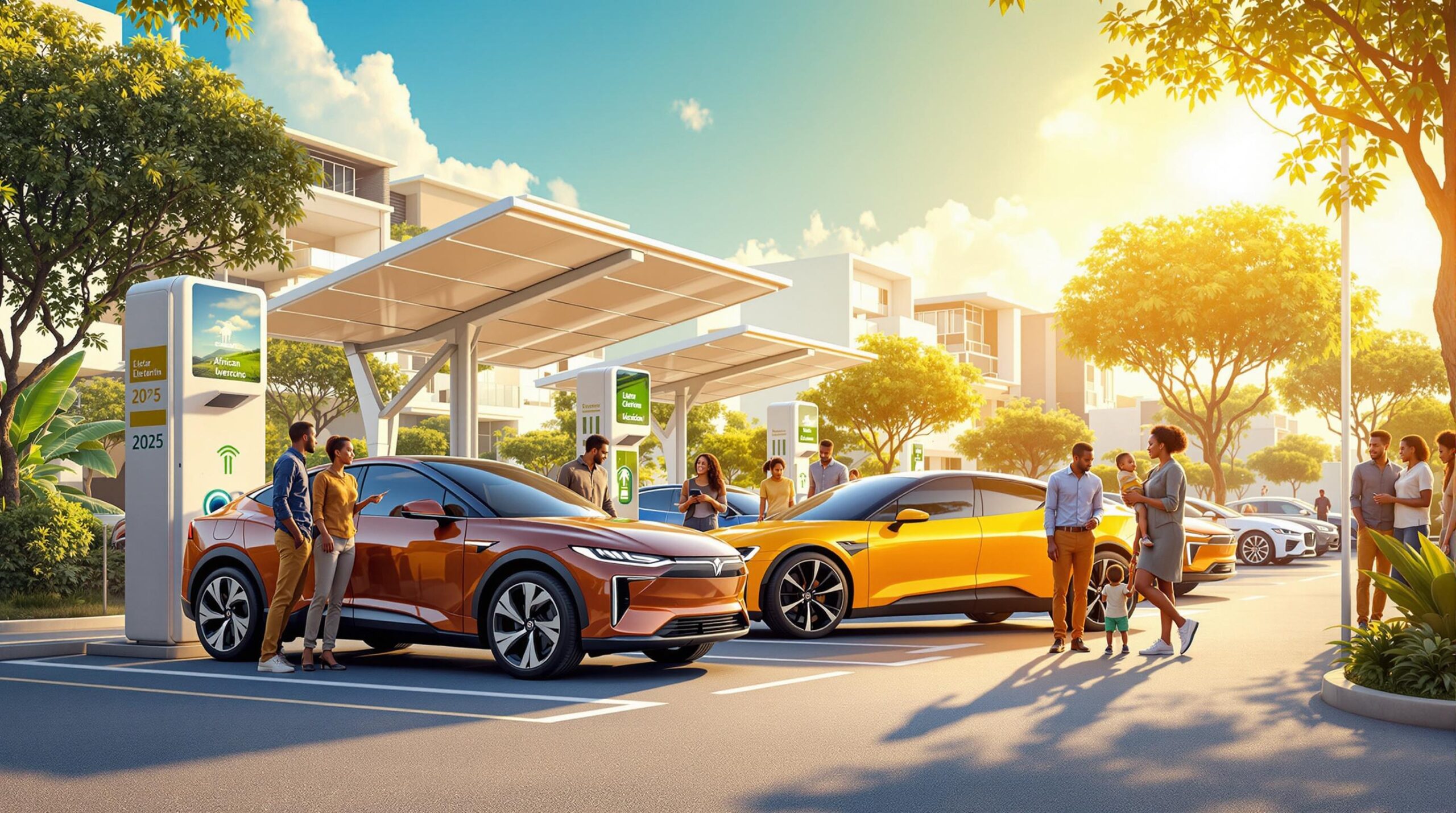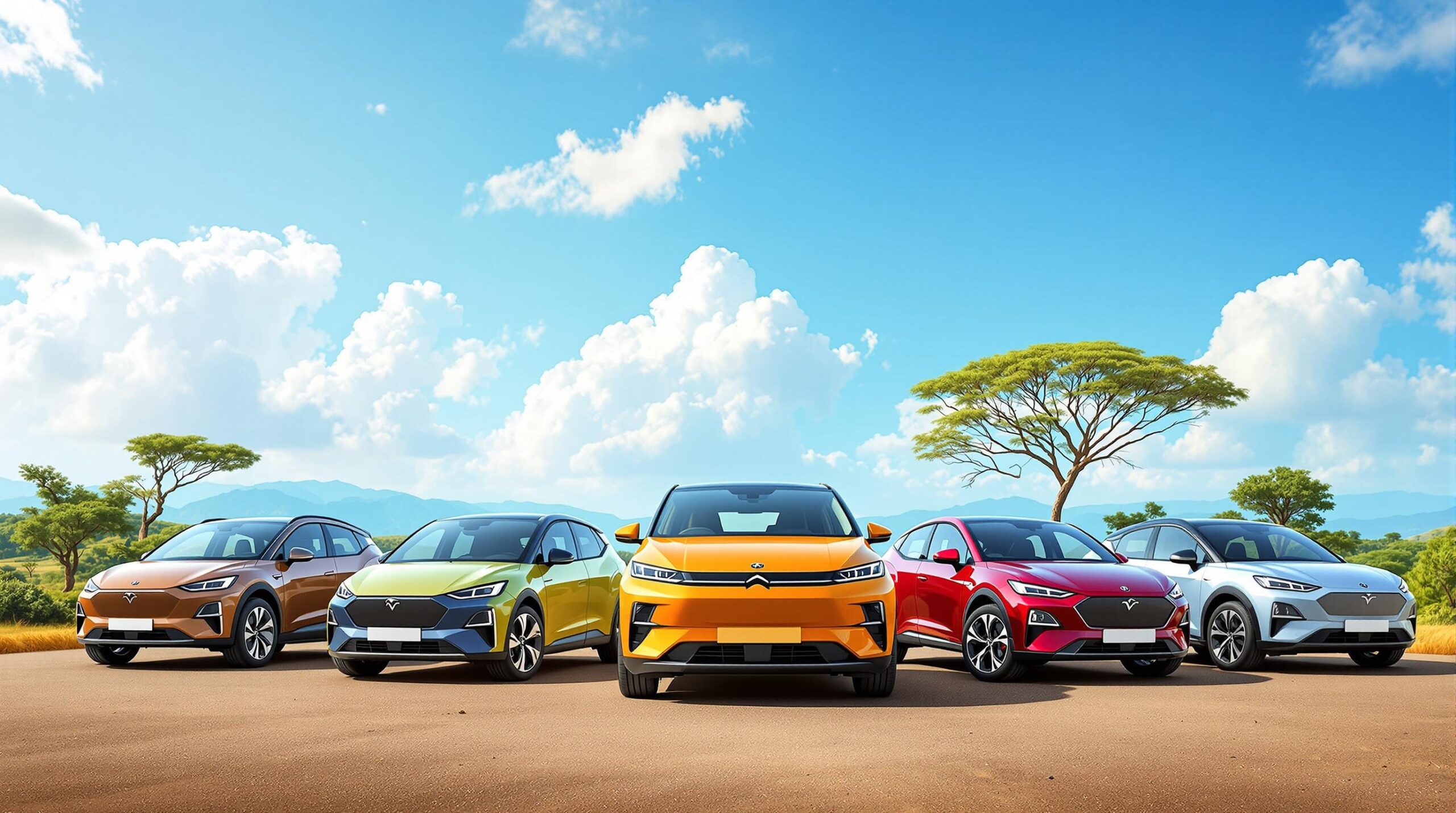
Electric cars are becoming more affordable and accessible in Africa, offering greener transportation and lower running costs. With prices starting at $10,000 and ranges over 150 miles, these vehicles are tailored for city commutes and local needs. Here’s what you need to know:
- Why EVs? Reduced CO2 emissions, lower fuel costs, and minimal maintenance.
- Challenges: Limited charging infrastructure and high upfront costs.
- Solutions: Affordable models, government incentives, and battery-swapping networks.
Quick Overview of Top Models:
- BYD Dolphin: $22,500, 250 miles range, fast charging.
- Nissan Leaf: $27,800, 226 miles range, city-friendly design.
- Leapmotor T03: $19,900, 180 miles range, compact and smart.
- Hyundai Kona Electric: $34,000, 258 miles range, advanced safety.
- Geely Geometry C: $25,600, 230 miles range, premium interior.
- Dongfeng EX1 Pro: $21,300, 200 miles range, compact SUV.
- Suzuki Wagon R EV: $20,800, 180 miles range, efficient for cities.
- Renault Zoe: $32,500, 245 miles range, reliable pre-owned option.
- Volkswagen ID.3: $35,000, 260 miles range, modern tech.
- ROX E1: $18,500, 170 miles range, designed for Africa.
Quick Comparison Table:
| Model | Price (USD) | Range (miles) | Charging Time | Key Features |
|---|---|---|---|---|
| BYD Dolphin | $22,500 | 250 | 6–8 hours | Fast charging, modern tech |
| Nissan Leaf | $27,800 | 226 | 7–8 hours | ProPILOT assist |
| Leapmotor T03 | $19,900 | 180 | 6–7 hours | Compact, smart features |
| Hyundai Kona Electric | $34,000 | 258 | 9–10 hours | Advanced safety |
| Geely Geometry C | $25,600 | 230 | 7–8 hours | Sleek design, premium tech |
| Dongfeng EX1 Pro | $21,300 | 200 | 6–7 hours | Compact SUV, affordable |
| Suzuki Wagon R EV | $20,800 | 180 | 6–7 hours | City-friendly, efficient |
| Renault Zoe | $32,500 | 245 | 8–9 hours | Pre-owned, dependable |
| Volkswagen ID.3 | $35,000 | 260 | 7–8 hours | High-tech, German build |
| ROX E1 | $18,500 | 170 | 4–6 hours | Africa-optimized design |
Tip: Choose based on your daily driving range, budget, and available charging options. EVs are becoming a practical and eco-friendly choice for Africa’s urban and suburban drivers.
BYD Dolphin Emerges as South Africa’s Most Affordable …
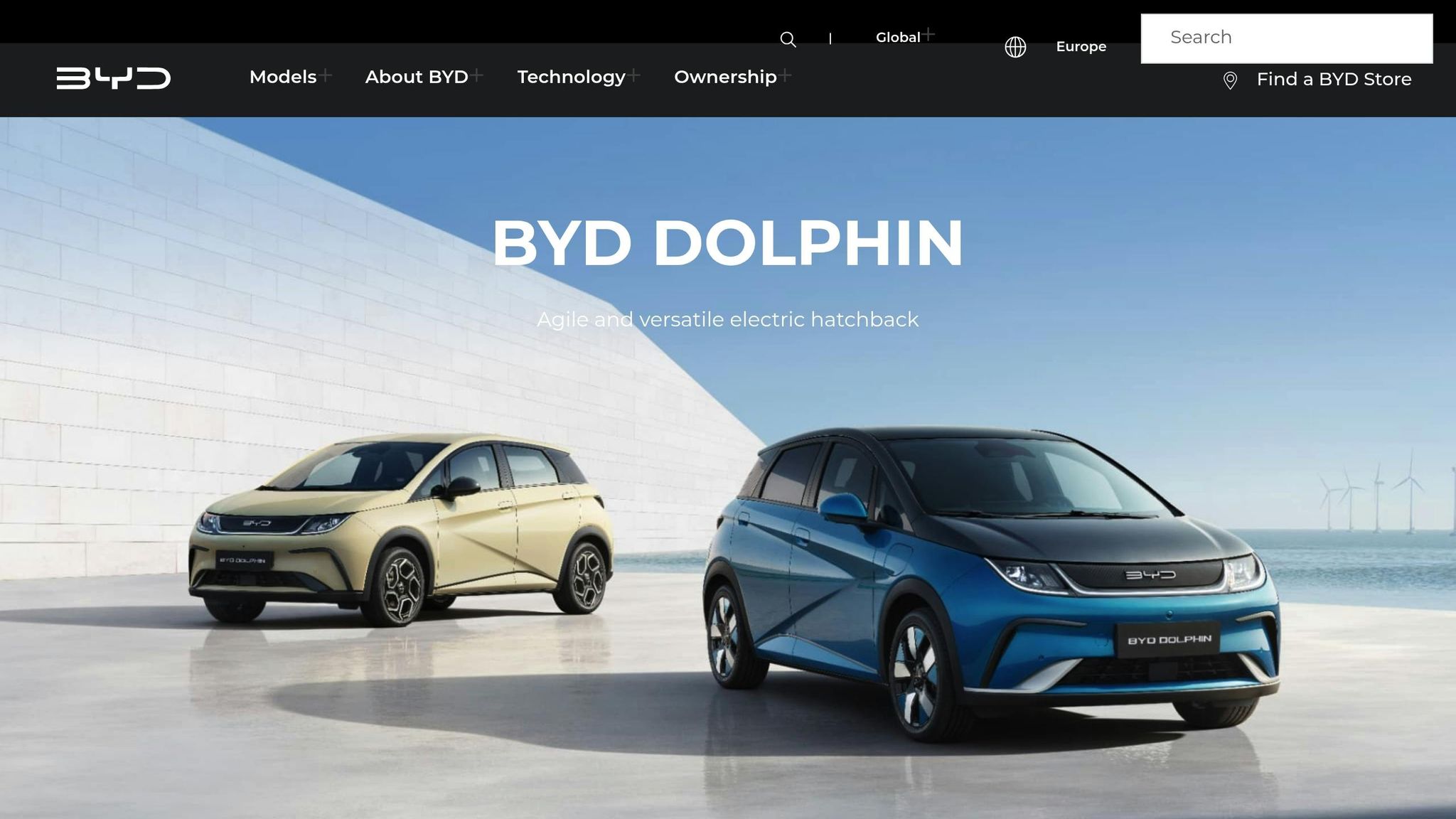
Electric Vehicle Market in Africa
Africa’s EV market is growing, driven by shifts in the economy, power systems, and technology. Vehicle ownership plays a key role in shaping EV adoption across the continent. In six major sub-Saharan countries – South Africa, Kenya, Rwanda, Uganda, Ethiopia, and Nigeria – the current vehicle fleet is about 25 million. This number is expected to rise to 58 million by 2040. In these regions, approximately 85% of four-wheel vehicle sales are used vehicles. These unique conditions present both challenges and opportunities for the EV market.
Market Challenges and Solutions
Africa faces several hurdles when it comes to EV adoption:
| Challenge | Impact | Responses |
|---|---|---|
| Electricity Access | Fewer than half of grid-connected users have reliable power | Battery swapping stations, mini-grid charging |
| Vehicle Cost | New EVs often exceed most buyers’ budgets | Affordable models and financing options |
| Infrastructure | Limited charging networks | Urban charging cabinets strategically placed |
There are already examples of progress. In Nairobi, electric boda-boda (motorcycle taxi) drivers save about $4.50 daily. Companies like ARC Ride are tackling charging issues by setting up networks of battery-swapping cabinets in cities.
Consumer Awareness and Demand
Surveys in Nigeria and Kenya reveal that over 90% of vehicle owners are aware of EVs. This awareness, combined with increasing concerns about fuel costs and the environment, is creating a favorable environment for EV adoption.
As consumer interest grows, paired with practical solutions, the case for EVs becomes even stronger.
Economic Viability
The cost of owning an EV is becoming more competitive. For instance, while electric two-wheelers cost more upfront – around $1,700–$1,800 compared to $1,300 for conventional models – they save about 25% in lifecycle costs over five years due to reduced fuel and maintenance expenses. This is especially appealing to commercial users.
The two-wheeler market is particularly promising. By 2040, Kenya and Nigeria are expected to sell 3–4 million electric two-wheelers annually. Godwin Ayetor, Senior Lecturer in Automobile Engineering at KNUST, highlights this shift:
"There is already a huge demand for cars, and people are now buying a lot of motorcycles… In all the African countries, the ratio is shifting from the four-wheelers to the two-wheelers because they seem affordable for a small family. And they are able to maneuver a lot of traffic and bad roads." – Godwin Ayetor
These trends emphasize the importance of affordable, reliable EVs tailored to local needs. With over 20 EV-focused startups raising more than $25 million in funding by the end of 2021, the future of electric mobility in Africa looks increasingly promising.
1. BYD Dolphin
The BYD Dolphin stands out in Africa’s affordable electric vehicle market with its mix of practicality and modern features. This all-electric hatchback, introduced in January 2022, is designed for both daily commutes and longer trips. Here’s a closer look at what it offers.
Performance and Range
The Dolphin is powered by a 150 kW (204 hp) motor, allowing it to go from 0 to 62 mph (0–100 km/h) in just 7 seconds. Its 60.4 kWh battery provides a WLTP range of up to 265 miles. Energy consumption is rated at 14.5 kWh per 100 km, roughly 3 miles per kWh.
Charging Capabilities
| Charging Type | Charging Time | Power |
|---|---|---|
| DC Fast Charging (30–80%) | 29 minutes | 100 kW |
| AC Home Charging (0–100%) | 5 hours 38 minutes | 11 kW |
| V2L External Power | Continuous | 3.3 kW |
The Dolphin’s Vehicle-to-Load (V2L) feature lets it serve as a mobile power source, which can be especially useful in areas with unreliable electricity.
Interior and Technology
Inside, the Dolphin boasts 345 liters of cargo space, expandable to 1,310 liters. The cabin includes a 12.8-inch touchscreen infotainment system, vegan leather seats, and a panoramic sunroof. It supports Android Auto and Apple CarPlay, while over-the-air updates keep the software up to date.
Safety and Reliability
The Dolphin has earned a 5-star Euro NCAP safety rating. It uses BYD’s Blade Battery technology, enhancing safety. The MacPherson strut front and multilink rear suspension provide smooth and balanced handling.
Practical Features
With a ground clearance of 130 mm (about 5.1 inches), the Dolphin is well-suited for various road conditions. Its powertrain offers three driving modes – Eco, Normal, and Sport – allowing drivers to adjust for performance or energy efficiency as needed.
The BYD Dolphin combines performance, advanced technology, and versatile charging options, making it an attractive option for those in Africa looking to transition to electric vehicles.
2. Nissan Leaf
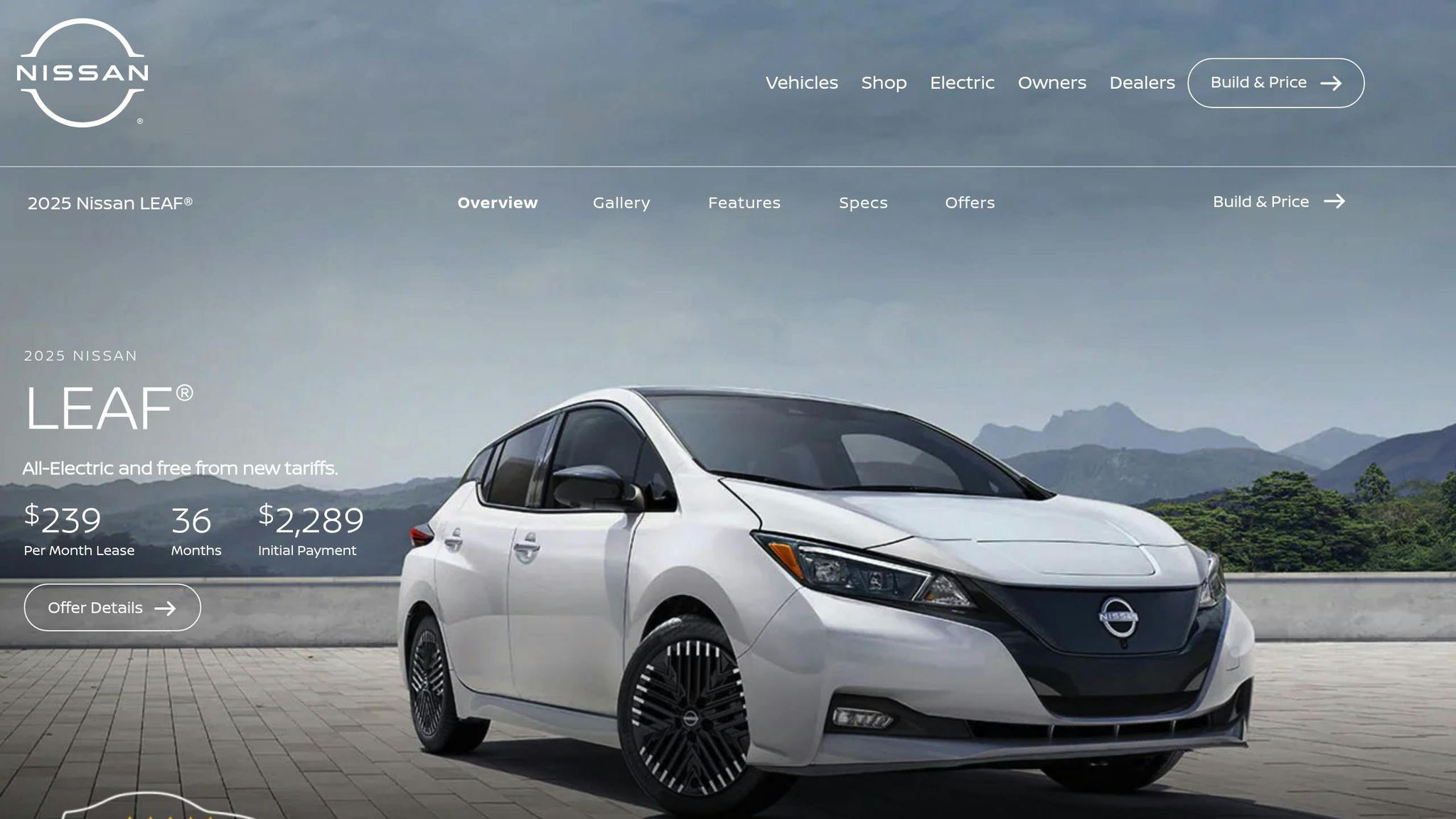
The Nissan Leaf is an all-electric hatchback tailored for city driving in Africa. Its motor delivers 80 kW (107 hp) and 280 Nm of torque, allowing it to reach speeds of up to 145 km/h (90 mph). On a full charge, it offers a range of approximately 109 miles (175 km).
Charging is straightforward and convenient. With standard AC charging, the battery can be fully recharged in about 7 hours, making it perfect for overnight charging. The car’s LED headlights consume about 50% less energy than traditional lights, contributing to its overall efficiency.
The Leaf is designed with both functionality and comfort in mind. Its flat underbody improves aerodynamics, while the battery placement maximizes interior space, comfortably seating up to five passengers. Measuring 175 inches (4,445 mm) in length, 69.7 inches (1,770 mm) in width, 61 inches (1,550 mm) in height, and with a 106.3-inch (2,700 mm) wheelbase, it combines a spacious interior with a sleek, modern exterior.
Safety features are another strong point. The Leaf is equipped with dual-stage front airbags, side-impact protection bars, roof-mounted curtain airbags, Vehicle Dynamic Control (VDC), Traction Control System (TCS), child safety rear door locks, and a Tire Pressure Monitoring System (TPMS). Additionally, its low vibration and quiet operation ensure a smooth and peaceful driving experience.
3. Leapmotor T03
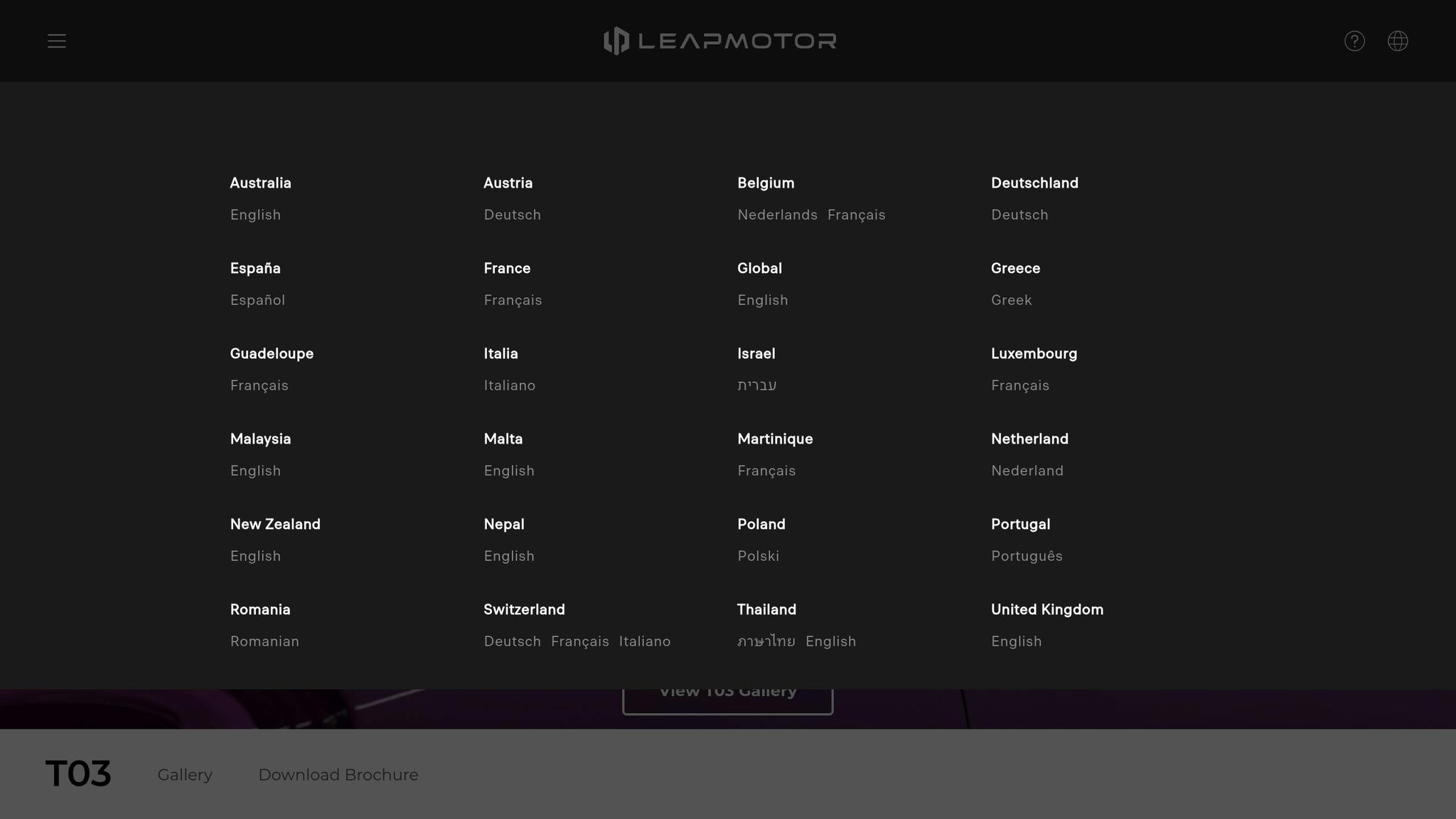
The Leapmotor T03 is a small, budget-friendly electric hatchback designed for city life in Africa. Its 80 hp electric motor delivers 158 Nm of torque, making it well-suited for urban driving.
This compact car measures 142.5 inches in length, 65 inches in width, 62.1 inches in height, and has a 94.5-inch wheelbase. It seats five passengers and is easy to maneuver in tight spaces. The 37.3 kWh battery provides a range of up to 174 miles (280 km) and can charge to 80% in just 36 minutes with fast charging.
| Feature | Specification |
|---|---|
| Motor Output | 80 hp |
| Maximum Torque | 158 Nm |
| Battery Capacity | 37.3 kWh |
| Range | Up to 174 miles (280 km) |
| Fast Charging | 80% in 36 minutes |
| Seating | 5 passengers |
Inside, the T03 offers a modern and tech-focused setup. The cabin includes a 10.1-inch touchscreen and an 8-inch digital instrument cluster. For safety, it features a 360° camera, ABS, EBD, ESP, and Level 2 autonomous driving capabilities supported by three cameras and twelve radar sensors (one millimeter-wave and eleven ultrasonic).
To boost buyer confidence, the battery comes with an 8-year/93,200-mile warranty. The T03 balances efficiency and practicality, catering to Africa’s growing urban centers.
4. Hyundai Kona Electric
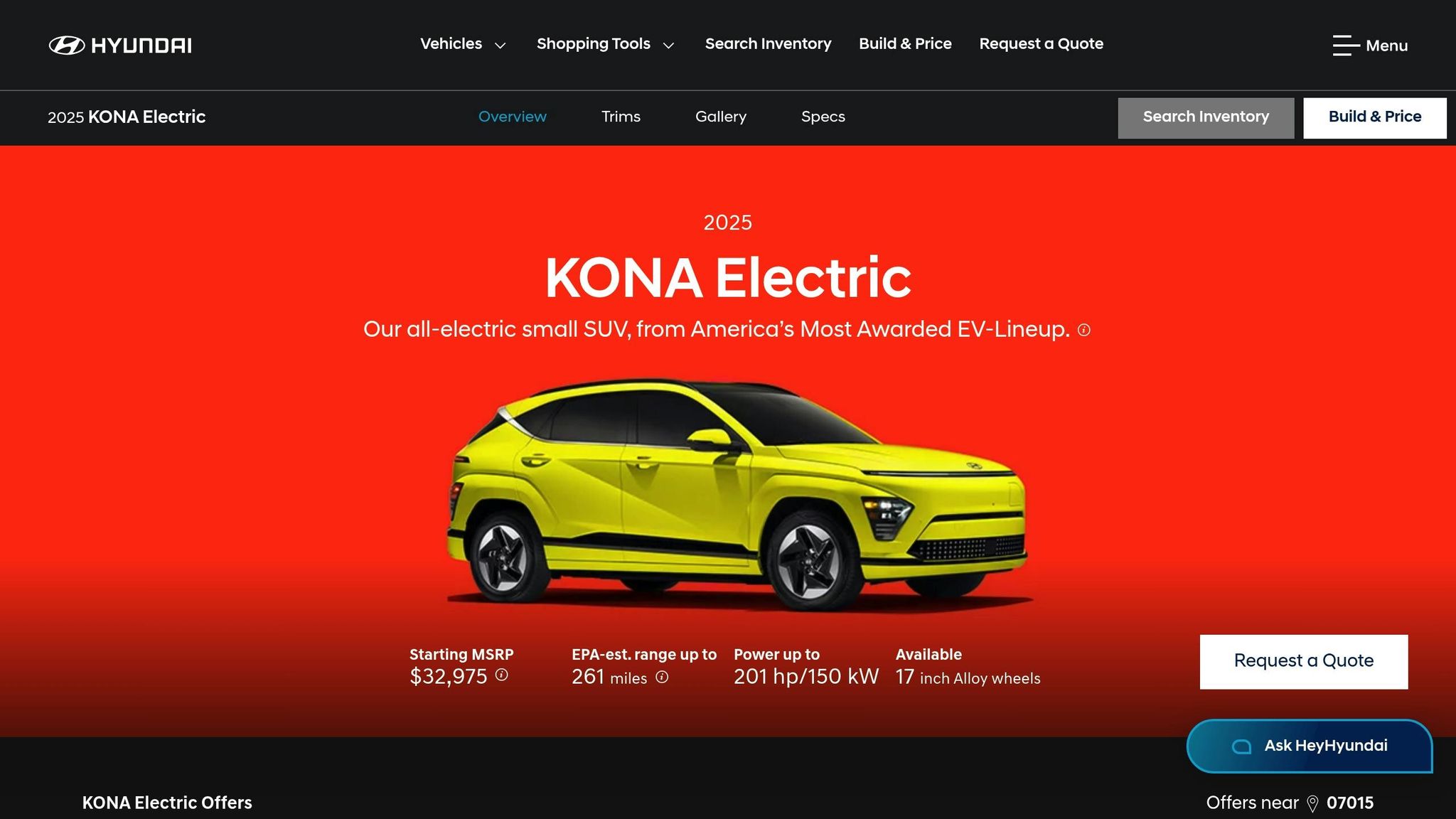
The Hyundai Kona Electric combines modern technology with a practical design, making it well-suited for Africa’s challenging road conditions. Its battery provides enough range for both city commutes and longer trips, while fast charging minimizes downtime.
With a raised design, the Kona Electric handles unpaved and uneven roads commonly found in the region. Inside, you’ll find digital displays and an easy-to-use infotainment system, offering both connectivity and comfort.
Key safety features include forward collision avoidance, lane-keeping assist, and blind-spot monitoring. The vehicle also comes equipped with a thermal management system to ensure the battery performs well in Africa’s high temperatures. These features, paired with a dependable warranty, make the Kona Electric a practical and budget-friendly option for drivers in African markets.
The Kona Electric supports both home charging and fast DC charging, offering flexibility for different needs.
5. Geely Geometry C
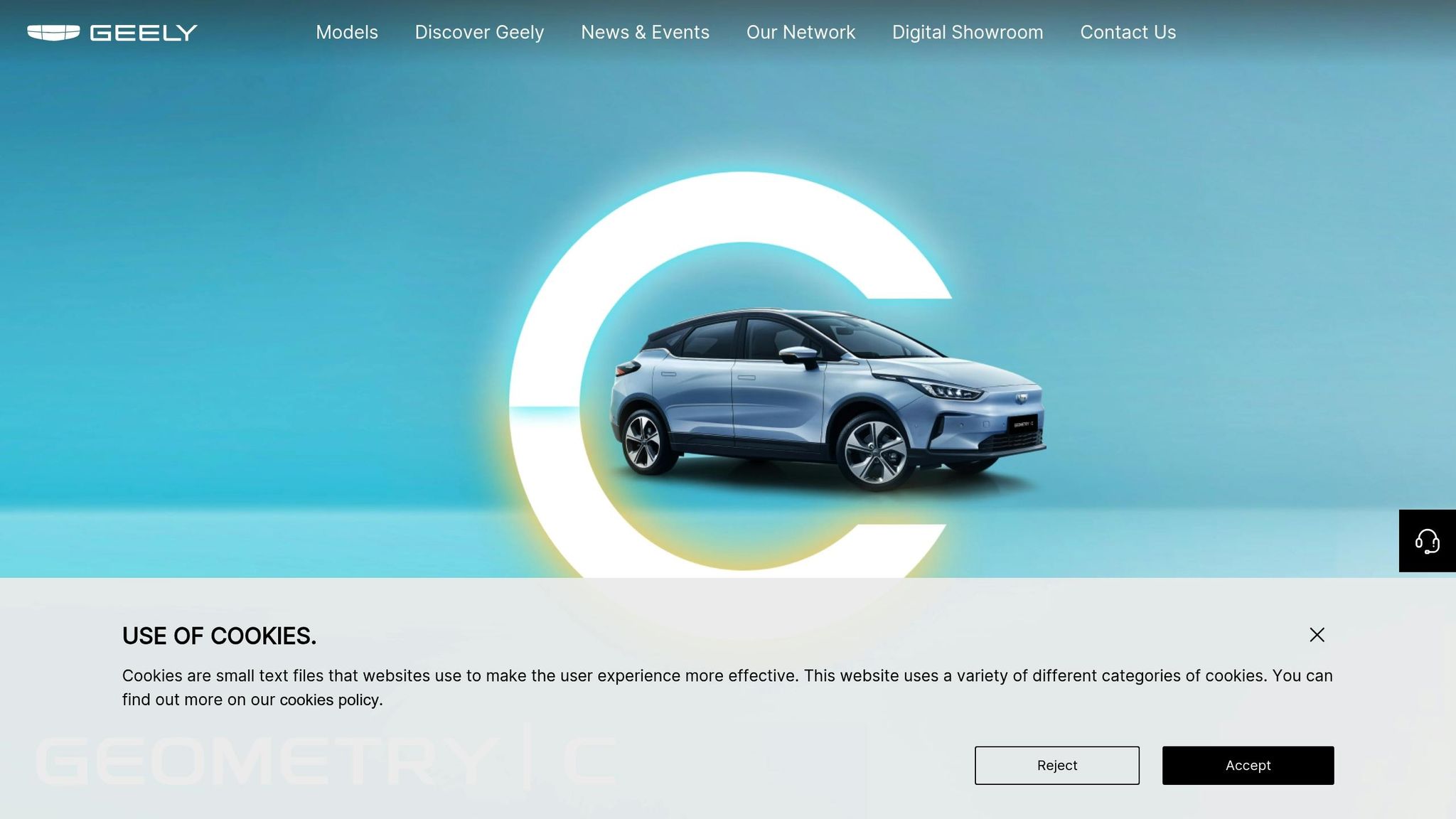
The Geely Geometry C blends a sleek design with practical features. Its 201-hp motor and 310 N⋅m torque make it a strong performer, whether you’re navigating city streets or heading out into the countryside.
A 53 kWh battery powers the Geometry C, offering up to 248 miles on a single charge. Fast-charging from 20% to 80% takes just 36 minutes, keeping downtime to a minimum. On the inside, the car offers a comfortable and well-equipped cabin.
The interior boasts a 12.3-inch touchscreen and a HUD projection digital display system. An IMAX panoramic sunroof adds to the spacious feel, while eco-friendly materials enhance the overall experience.
Safety and convenience are front and center, with features like adaptive cruise control, lane-keeping assistance, a 360° camera system, and a rain sensor. The 540° AR chassis perspective system makes parking easier, while feather-shaped taillights and blade-shaped LED headlamps add style and visibility.
Built on a 106.3-inch wheelbase, the Geometry C delivers stable handling and a roomy interior. Its energy recuperation system also helps improve efficiency.
Key Specifications:
| Feature | Specification |
|---|---|
| Battery Capacity | 53 kWh |
| Maximum Power | 201 hp |
| Maximum Torque | 310 N⋅m (229 lb-ft) |
| Fast Charging (20–80%) | 36 minutes |
| Range (NEDC) | 248 miles |
| Wheelbase | 106.3 inches |
With its thoughtful features, solid range, and smart systems, the Geometry C is a strong choice for buyers in Africa’s growing electric vehicle market.
sbb-itb-99e19e3
6. Dongfeng EX1 Pro

The Dongfeng EX1 Pro is a compact electric SUV designed for city driving. Its electric motor produces 44 hp and 125 Nm (about 92 lb-ft) of torque, making it a practical choice for urban environments where efficiency and easy handling are essential.
With a 27.2 kWh battery, the EX1 Pro delivers an estimated range of 205 miles (330 km). Its compact size – measuring around 12.2 ft in length, 5.2 ft in width, and 5 ft in height – makes it perfect for navigating crowded streets and tight parking spaces. Inside, the vehicle offers a modern and comfortable experience.
The cabin includes a 10-inch central touchscreen, a 7-inch digital speedometer, and seats upholstered in a mix of leather and fabric. Safety features are also well-covered, with dual airbags, ABS, and a tire pressure monitoring system included.
Key Specifications:
| Feature | Specification |
|---|---|
| Battery Capacity | 27.2 kWh |
| Power Output | 44 hp |
| Torque | 125 Nm (approx. 92 lb-ft) |
| Range | 205 miles (330 km) |
| Top Speed | 62 mph (100 km/h) |
| Curb Weight | 2,030 lbs (921 kg) |
| Screen Size | 10 inches |
On the outside, the EX1 Pro is equipped with full LED headlights and electric side mirrors. Its compact SUV design offers a raised driving position for better visibility. At a price of about $16,200 (converted from 11,500 JD), it provides an affordable entry into the electric vehicle market, especially for budget-conscious buyers in Africa.
With its efficient design, reliable range, and competitive pricing, the Dongfeng EX1 Pro is a smart choice for those looking for a city-friendly electric vehicle.
7. Suzuki Wagon R EV
The Suzuki Wagon R EV offers an affordable entry into electric mobility, building on the widely popular Wagon R platform. By December 2024, over 3.2 million units of the Wagon R had been sold in India, showcasing its strong market presence. Now, the EV version combines this success with modern electric technology to deliver better efficiency.
It’s built on Suzuki’s HEARTECT platform, which is also used in models like the Ignis, Celerio, and Swift. This platform ensures a solid structure and reliable performance, making it a practical choice for urban driving.
Key Specifications
| Feature | Specification |
|---|---|
| Body Style | Mini MPV |
| Platform | HEARTECT |
| Safety Rating | 2-star Global NCAP (2019) |
| Safety Features | Driver airbag, basic protection systems |
The Wagon R EV includes essential safety features like a driver airbag and basic protection systems. Its compact size makes it perfect for navigating crowded city streets, offering a convenient option for daily commutes. For budget-conscious buyers in Africa, it strikes a balance between an affordable purchase price and low running costs.
8. Renault Zoe
The Renault Zoe is a practical option for Africa’s growing electric vehicle market. While new production has ceased, pre-owned models remain an affordable and reliable choice for electric mobility.
Performance and Range
The Zoe E-Tech électrique delivers up to 245 miles (395 km) of range on a single charge, as tested under WLTP conditions. This makes it ideal for daily commutes and city travel, offering a dependable solution for urban mobility.
Key Features
| Feature | Specification |
|---|---|
| Range (WLTP) | 245 miles (395 km) |
| Vehicle Type | Compact urban EV |
| Best Use Case | City driving, last-mile deliveries |
| Maintenance | No timing belt, oil tank, or filters needed |
Cost Savings
Owning a Zoe can lead to lower operating expenses. Without parts like timing belts, oil tanks, or filters, maintenance costs are significantly reduced. Additionally, charging costs are often lower compared to fuel, offering long-term financial benefits for owners.
Urban-Friendly Design
In many African cities adopting eco-friendly policies, Zoe owners enjoy perks like access to restricted traffic zones, preferential parking, and reduced urban operating costs. Its compact size and zero-emission design make it an excellent choice for last-mile deliveries, aligning with the region’s green urban goals.
9. Volkswagen ID.3
The Volkswagen ID.3 blends cutting-edge tech with a refreshed design, offering an accessible electric vehicle option for Africa.
Performance Specifications
The ID.3 Pro S model runs on a 77 kWh battery paired with an upgraded drivetrain, delivering up to 170 kW of power.
| Feature | Specification |
|---|---|
| Battery Capacity | 77 kWh (net) |
| Maximum Power Output | 170 kW |
| Interior Material | Animal-free materials |
| Software | Advanced assist systems |
Design and Technology
The ID.3 boasts a revamped exterior and a sleek interior crafted with premium, animal-free materials. Its state-of-the-art assist systems and award-winning technology highlight Volkswagen’s focus on electric innovation. These elements make it an excellent choice for Africa’s growing urban mobility needs.
Tailored for the African Market
Equipped with advanced assist systems and a comprehensive software suite, the ID.3 is designed to meet the challenges of city life. As part of Volkswagen’s ID. lineup, it reflects the brand’s ongoing commitment to expanding electric vehicle options in Africa.
10. ROX E1
The ROX E1 stands out as an affordable electric vehicle (EV) designed specifically for Africa, combining reliable performance, practical design, and modern features.
Performance and Range
This EV offers dependable range and smooth acceleration, making it well-suited for various road conditions across the region.
Compact Design for Urban Roads
With its small size, the ROX E1 is easy to navigate through crowded city streets. It also features a simple infotainment system and sleek lighting that enhance its usability and style.
Affordable and Accessible
The ROX E1 is aimed at buyers seeking an economical entry into electric mobility. To support this, the manufacturer is establishing a strong after-sales network in key African markets.
Features for Comfort and Safety
It includes advanced climate controls, reliable safety systems, and connectivity options to make driving more comfortable and convenient.
EV Specifications Comparison
Take a closer look at these specifications to find the right balance between performance and affordability.
Specifications Table
| Vehicle Model | Price (USD) | Range (miles) | Charging Time | Key Features |
|---|---|---|---|---|
| BYD Dolphin | $22,500 | 250 | 6–8 hours | Fast charging capability |
| Nissan Leaf | $27,800 | 226 | 7–8 hours | ProPILOT assist |
| Leapmotor T03 | $19,900 | 180 | 6–7 hours | Smart connectivity |
| Hyundai Kona Electric | $34,000 | 258 | 9–10 hours | Advanced safety features |
| Geely Geometry C | $25,600 | 230 | 7–8 hours | Premium interior |
| Dongfeng EX1 Pro | $21,300 | 200 | 6–7 hours | Compact design |
| Suzuki Wagon R EV | $20,800 | 180 | 6–7 hours | Space efficiency |
| Renault Zoe | $32,500 | 245 | 8–9 hours | European build quality |
| Volkswagen ID.3 | $35,000 | 260 | 7–8 hours | German engineering |
| ROX E1 | $18,500 | 170 | 4–6 hours | Africa-optimized |
Charging Infrastructure
Most of these vehicles can charge using a standard 220V domestic socket, which typically takes 4–6 hours for a full charge. This option is particularly useful in areas where dedicated charging stations are still limited.
Operating Costs
Beyond the sticker price, running costs play a big role in the overall affordability of EVs. In many parts of Africa, the average operating cost for these vehicles is around $0.21 per mile. This makes them a cost-effective option for daily urban commutes when compared to traditional fuel-powered cars.
When choosing an EV, think about factors like:
- Your daily driving distance
- Charging options available to you
- Budget limits
- Local climate
- How much cargo space you’ll need
Next, we’ll dive into the cost and market factors to help narrow down your options.
Cost and Market Considerations
Let’s dive into the financial and market factors influencing electric vehicle (EV) adoption in Africa. The affordability of EVs in the region is shaped by upfront costs, infrastructure expenses, and ongoing maintenance requirements. Below, we break down these key cost elements.
EVs typically come with higher upfront costs – around 13.5% more than traditional vehicles – and additional import duties, such as Ghana’s 20% duty on EV imports. Infrastructure costs also vary widely: installing a home charger averages $826 per vehicle, while setting up a public charging station can run as high as $26,000.
One study in Ghana highlights the long-term cost dynamics. Without government incentives, battery electric vehicles (BEVs) achieve cost parity with conventional cars in 11 years. However, with measures like waiving the 20% import duty and reducing interest rates from 23% to 10%, this parity can be reached in just one year.
Key Cost Factors
| Cost Factor | Current Scenario | With Government Incentives |
|---|---|---|
| Time to Cost Parity | 11 years | 1 year |
| Import Duty Impact | 20% extra cost | Waived |
| Interest Rate Effect | 23% rate | 10% rate |
Switching to EVs offers substantial environmental benefits. For instance, they can cut CO2 emissions by 72%, NOx by 85%, VOCs by 99.2%, SOx by 41%, and particulate matter by 60%.
Experts suggest that governments should encourage EV adoption through targeted initiatives, such as offering loans with interest rates below 10% and removing import duties on BEVs. Ghana’s 98.59 GWh energy surplus shows the country is well-positioned to support a growing EV market, potentially accommodating up to 1.5 million electric vehicles.
Maintenance remains a challenge, with limited access to skilled EV technicians, difficulties in sourcing spare parts, and the need for a more developed charging network. Addressing these issues is crucial for making EV ownership a practical option across Africa.
Conclusion
Africa’s electric vehicle (EV) market is growing quickly, presenting a practical and affordable option for transportation. With running costs as low as 13 cents per kilometer and the ability to charge at home using a standard 220V outlet, EVs are becoming an attractive choice. Plus, lithium batteries – requiring minimal maintenance – offer long-term savings and are suitable for both personal and commercial use.
Local manufacturing is also gaining momentum, highlighting the region’s dedication to advancing transportation options. For instance, Nigeria’s Innoson Motors has launched four EV models made locally. This effort not only reduces dependence on imported vehicles but also boosts the local economy.
EV Africa captures the benefits of these vehicles perfectly:
"EV Africa offers affordable environmentally friendly electric cars and scooters. Considered a superior alternative to vehicles powered by fossil fuels, our electric vehicles are smaller and more economical, with zero emissions, offering 13 cents per kilometer running cost and featuring maintenance-free Lithium batteries, chargeable from a standard home cable."
When choosing an EV, buyers should evaluate their daily driving range, charging convenience, and overall needs. Models available today can travel up to 160 kilometers on a single charge, with charging times ranging from 4 to 6 hours. These features make EVs a practical option for both city and suburban lifestyles, pointing to a bright future for electric mobility across the continent.


